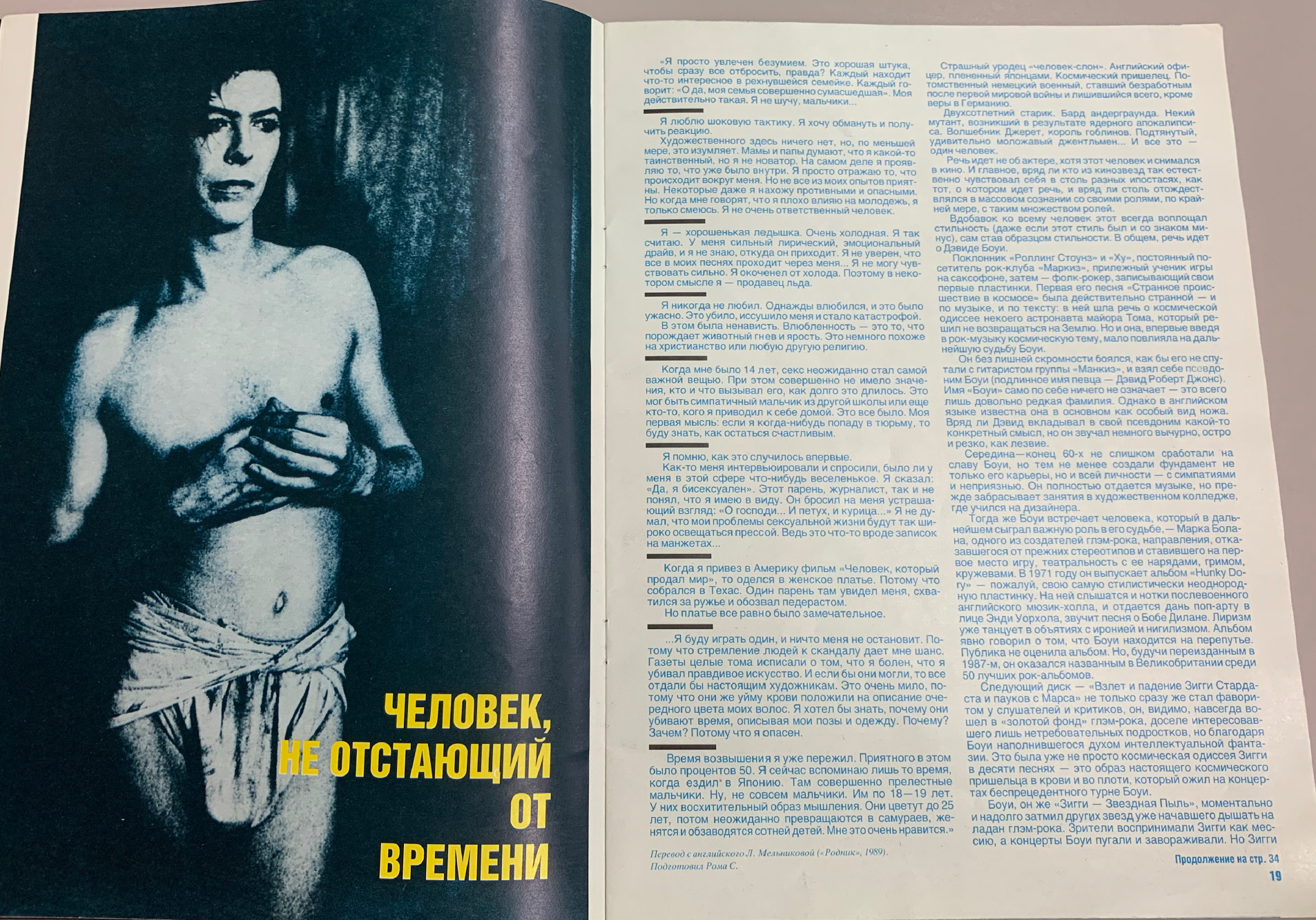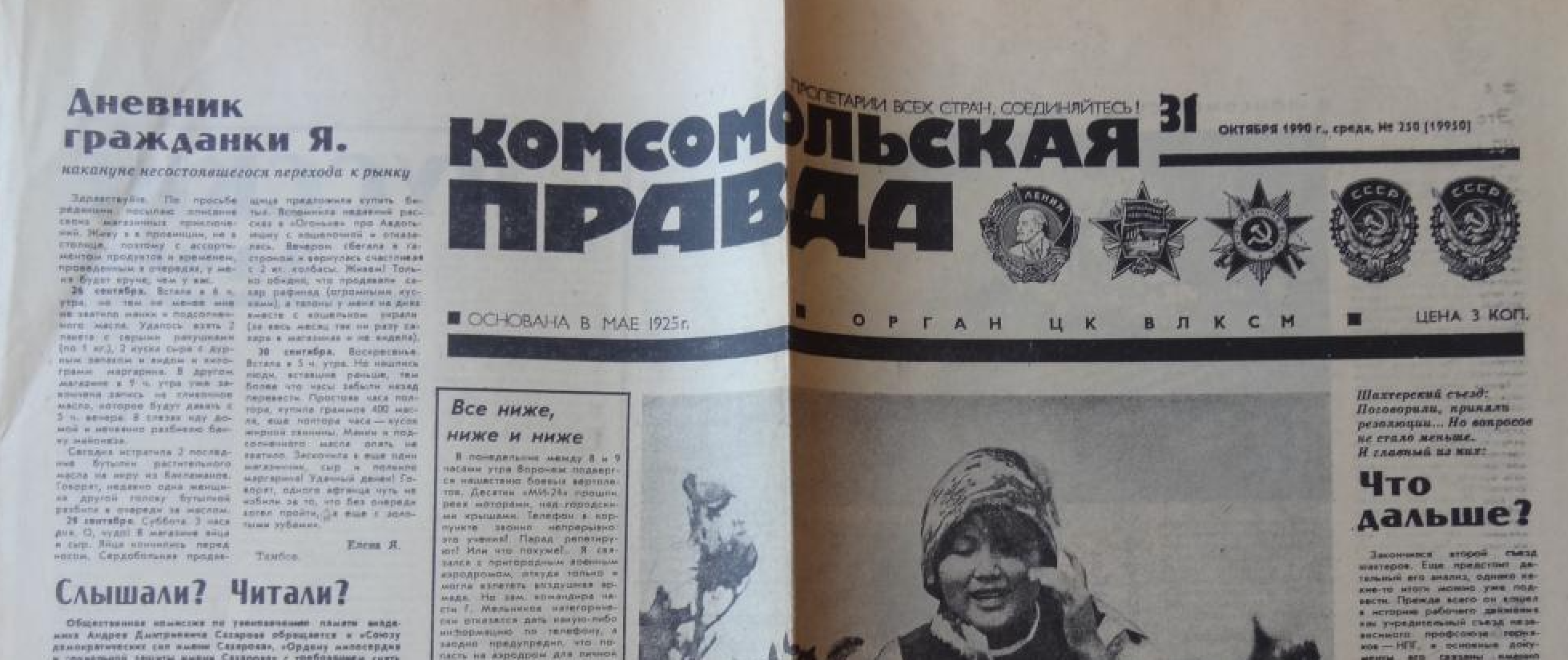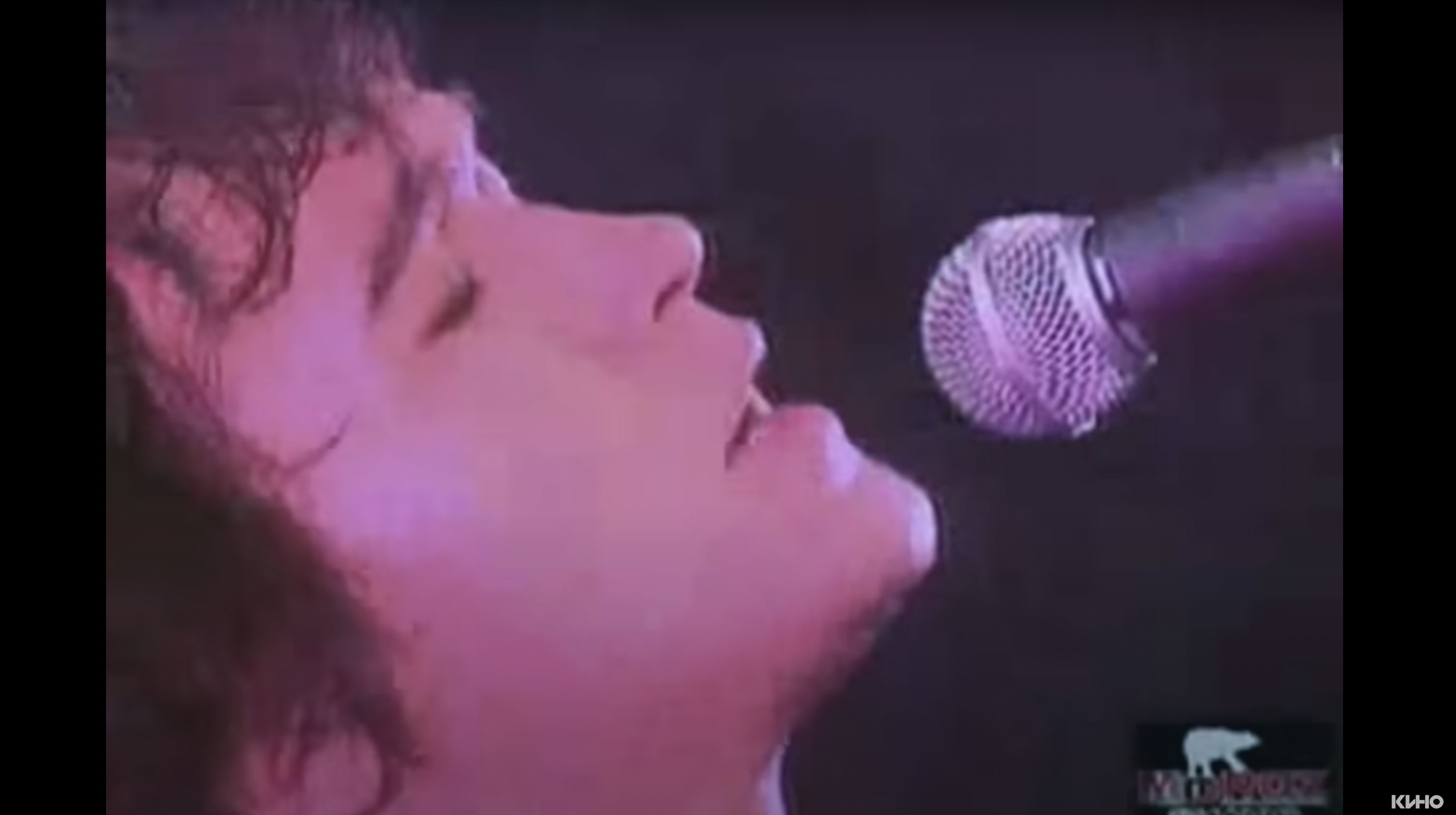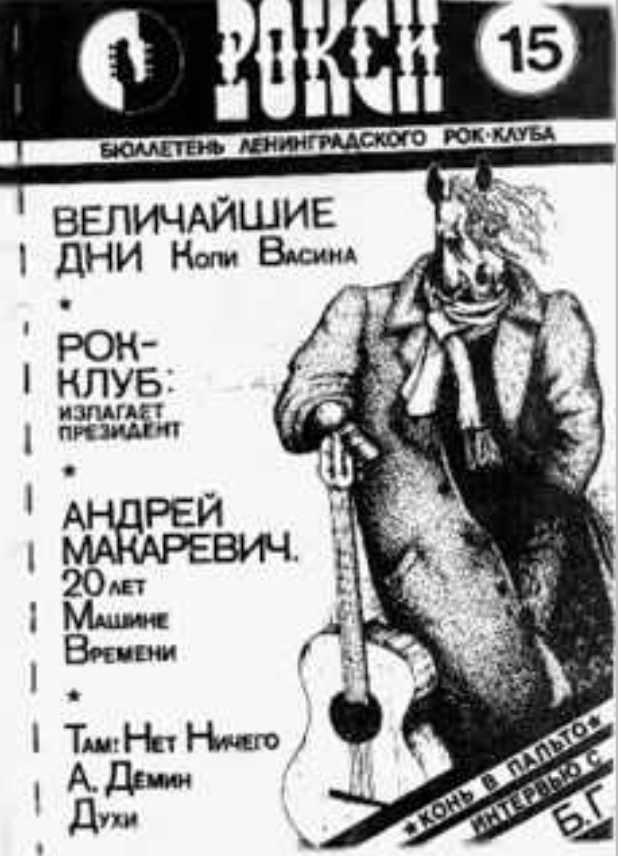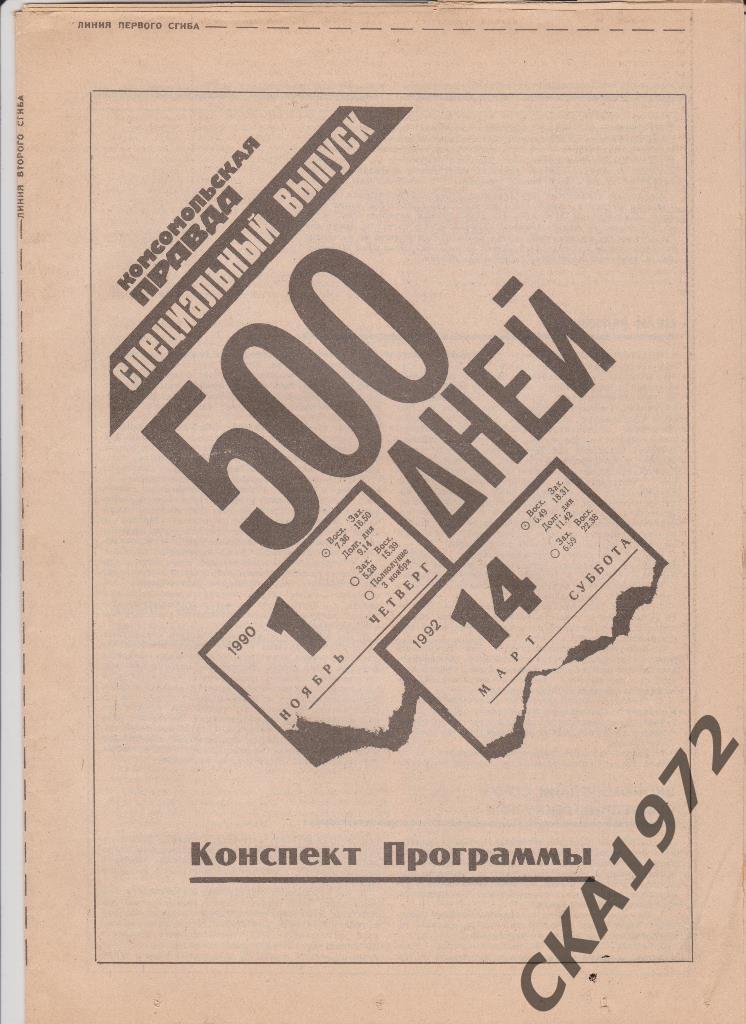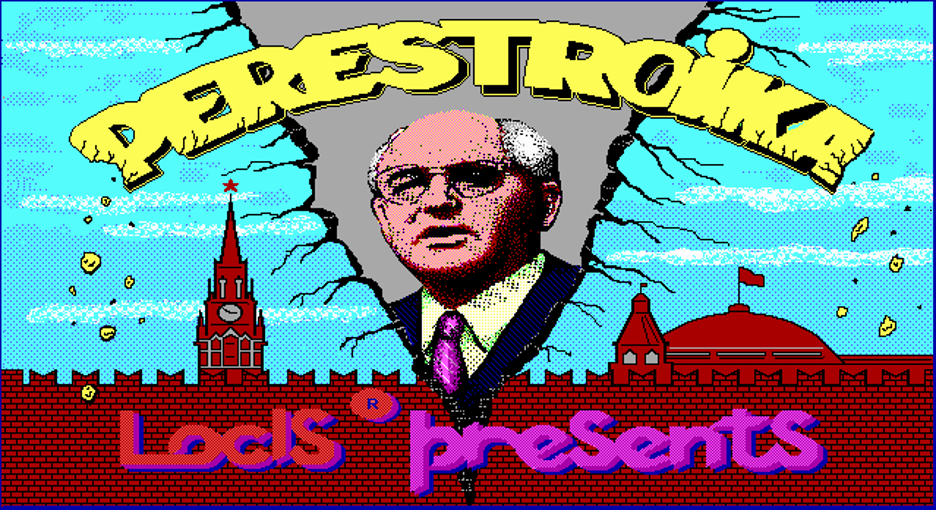A Man Who Keeps Up with the Times
An undated 1990s-era piece on David Bowie, focusing on the star’s bisexuality, in the glossy color gay magazine Mal’chishnik (Stag Party).
Piskunov’s “Kitchen Diary” in “Komsomolskaya pravda”
For almost a month in 1990, a student named S. Piskunov documented regional shortages in a "kitchen diary," responding to “Komsomol’skaia pravda”'s call for readers to track the impacts of Gorbachev's economic reforms on daily life.
Kino’s last concert at Luzhniki Stadium
Footage of a live Kino concert at Moscow's Luzhniki Stadium on 24 June 1990, about six weeks before frontman Viktor Tsoi's death in a car accident in rural Latvia at the age of 28. We see the band at the apex of its popularity, and the country in transition: a heavy and conspicuous Soviet police detail is assigned to the event, while audience members wave both the Soviet flag and the Russian tricolor banner.
Last issue of the samizdat “Roksi” magazine, 1990
The final print issue of the Leningrad-based samizdat rock journal Roksi, founded in 1977 by members of the rock band Aquarium and the future president of the Leningrad Rock Club (LRC). Considered the first rock publication in the Soviet Union, and subject to raids by the KGB, Roksi eventually became the official newsletter of the LRC—thus attaining legitimization by the state apparatus.
“500 Days: Program Summary,” a special issue of "Komsomolskaya pravda"
A special issue of the long-running Soviet daily "Komsomolskaya pravda" dedicated to economist Stanislav Shatalin's (1934-1997) "500 days" plan for economic reform under Mikhail Gorbachev (1931-2022).
View Artifact
Nikita Skripkin and Locis Studio's "Perestroika" video game (1990-1998)
Perestroika, the puzzle game based on the eponymous series of late-Soviet political reforms, heralded a new, weird age in Russian gaming in its inexplicable attempt to represent the ongoing political turmoil via the reductive means of traversing colorful islands to prosperity.
